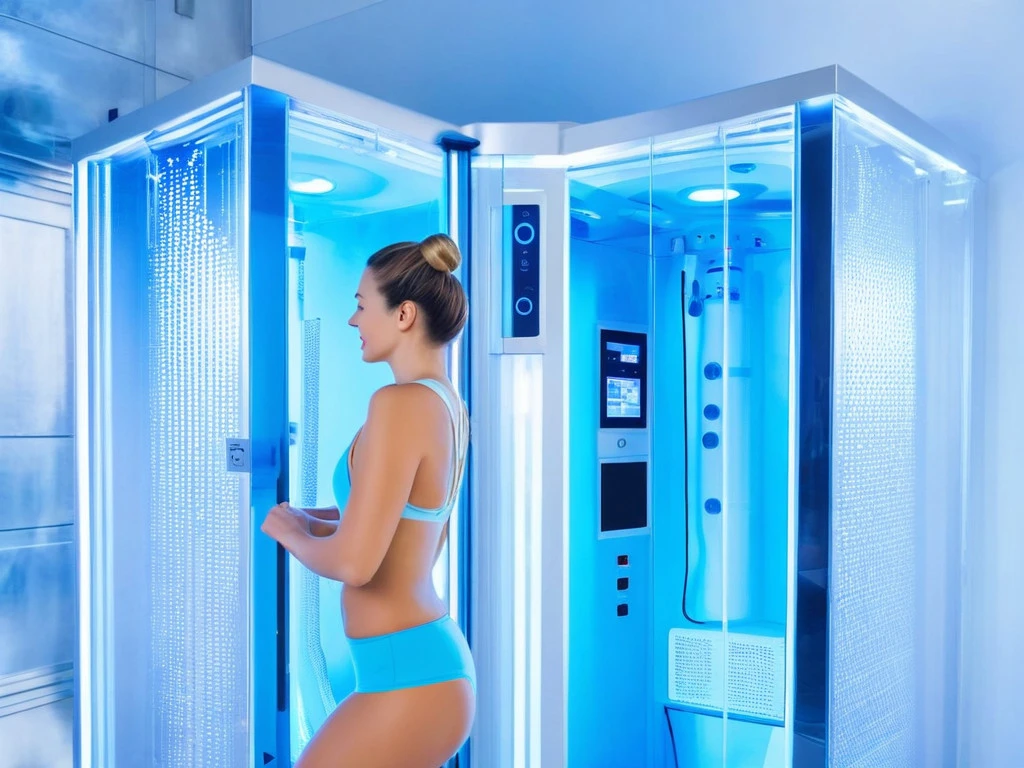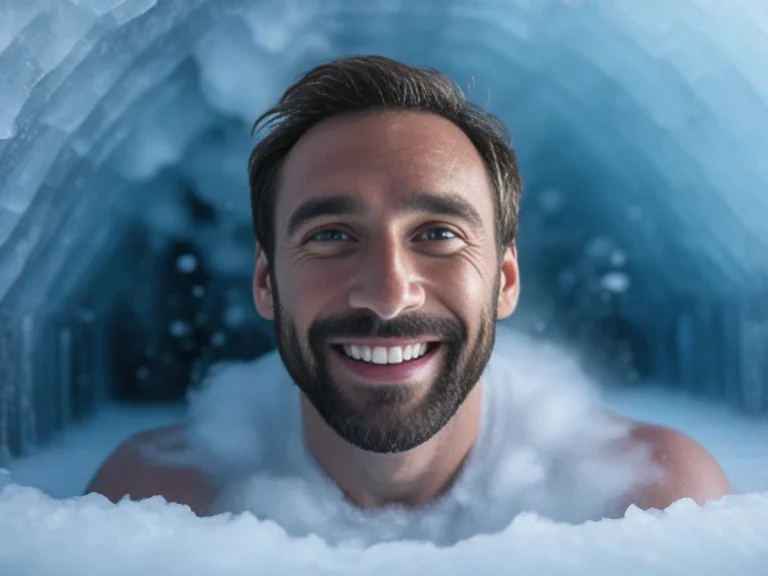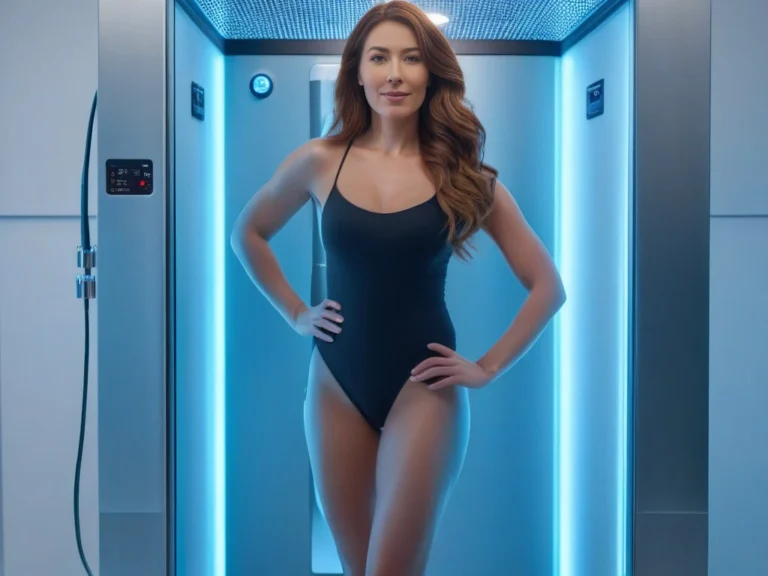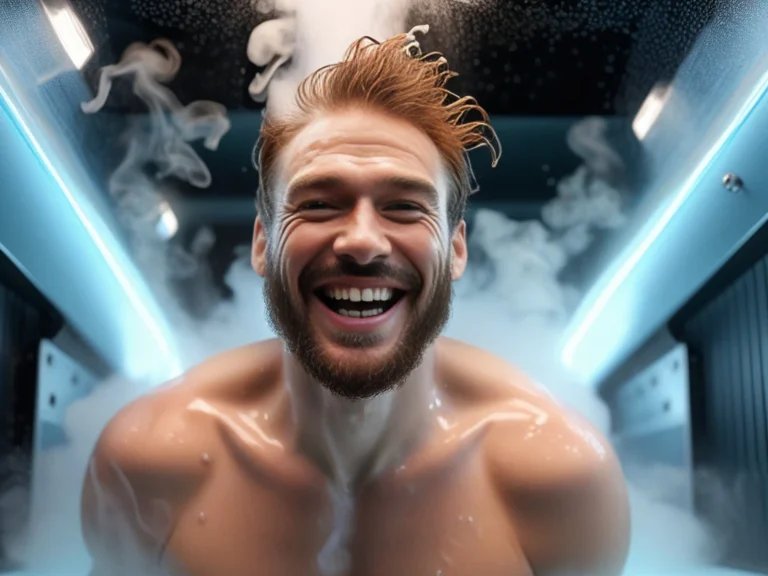How Can Londoners Benefit from Regular Cryotherapy Sessions?

Cryotherapy, derived from the Greek words “cryo” meaning cold and “therapy” meaning treatment, is a form of therapy that involves exposing the body to extremely cold temperatures for a short period. This treatment has been used for centuries, with the ancient Egyptians and Greeks using cold therapy to treat various ailments.
So, how can Londoners benefit from regular cryotherapy sessions?
SUMMARY
- Cryotherapy is a treatment that involves exposing the body to extreme cold temperatures for a short time.
- It can help Londoners with chronic pain by reducing inflammation and promoting healing.
- Cryotherapy can boost the immune system by increasing the production of white blood cells.
- It can enhance athletic performance and speed up recovery time by reducing muscle soreness and fatigue.
- Cryotherapy can alleviate stress and anxiety by triggering the release of endorphins and reducing cortisol levels.
How Cryotherapy Can Help Londoners with Chronic Pain
Chronic pain is defined as pain that lasts for more than three months. It can be caused by a variety of factors, including injury, illness, or underlying medical conditions. Living with chronic pain can be debilitating and affect one’s quality of life.
Cryotherapy can be an effective treatment for chronic pain. The extreme cold temperatures help to numb the affected area, providing immediate relief. Additionally, cryotherapy reduces inflammation in the body, which is often a major contributor to chronic pain.
Londoners who have tried cryotherapy for chronic pain have reported positive results. Sarah, a 45-year-old London resident, suffered from chronic back pain for years. After trying various treatments with little success, she decided to give cryotherapy a try. She noticed a significant reduction in pain after just a few sessions and now incorporates cryotherapy into her regular pain management routine.
John, a 50-year-old Londoner, had been dealing with arthritis pain in his knees for years. He had tried various medications and therapies, but nothing seemed to provide long-lasting relief. After trying cryotherapy, he noticed a significant reduction in pain and an improvement in his mobility. He now recommends cryotherapy to anyone suffering from chronic pain.
Boosting Immune System with Cryotherapy in London
The immune system is the body’s defence mechanism against infections and diseases. A strong immune system is essential for overall health and well-being. However, factors such as stress, poor diet, lack of sleep, and exposure to toxins can weaken the immune system.
Cryotherapy can help boost the immune system by stimulating the production of white blood cells. These cells are responsible for fighting off infections and diseases. When the body is exposed to extreme cold temperatures during cryotherapy, it triggers an immune response, leading to an increase in white blood cell production.
Londoners who have tried cryotherapy for immune system boosting have reported positive results. Emma, a 35-year-old London resident, had been prone to frequent colds and infections. After incorporating cryotherapy into her wellness routine, she noticed a significant decrease in the number of illnesses she experienced. She now credits cryotherapy for strengthening her immune system.
Mark, a 40-year-old Londoner, had been feeling run down and fatigued for months. He decided to try cryotherapy as a way to boost his energy levels and improve his overall health. After just a few sessions, he noticed an increase in his energy levels and a decrease in the frequency of illnesses he experienced. He now considers cryotherapy an essential part of his immune-boosting routine.
Cryotherapy for Athletes: Enhancing Performance and Recovery
Athletes are constantly pushing their bodies to the limit, which can lead to muscle soreness, fatigue, and an increased risk of injury. Cryotherapy can be a valuable tool for athletes to enhance their performance and aid in recovery.
Cryotherapy works by reducing inflammation in the body, which can help alleviate muscle soreness and promote faster recovery. The extreme cold temperatures also help to numb the pain, allowing athletes to push through intense workouts or competitions.
London athletes who have tried cryotherapy for performance and recovery have reported positive results. Tom, a professional runner, incorporates cryotherapy into his training routine. He finds that it helps him recover faster between workouts and reduces muscle soreness. He also notices an improvement in his performance on race day.
Sophie, a competitive weightlifter, uses cryotherapy to aid in her recovery after intense training sessions. She finds that it helps reduce inflammation in her muscles and speeds up the healing process. She also notices an improvement in her strength and endurance when she incorporates cryotherapy into her routine.
Cryotherapy for Mental Health: Alleviating Stress and Anxiety
In today’s fast-paced world, stress and anxiety have become common issues for many Londoners. Chronic stress can harm both physical and mental health. Cryotherapy can be a valuable tool for alleviating stress and anxiety.
Cryotherapy works by triggering the release of endorphins, which are natural mood enhancers. The extreme cold temperatures also help to reduce inflammation in the body, which can contribute to feelings of stress and anxiety.
Londoners who have tried cryotherapy for mental health have reported positive results. Emily, a 30-year-old London resident, had been dealing with high levels of stress at work. She decided to try cryotherapy as a way to relax and unwind. After just a few sessions, she noticed a significant reduction in her stress levels and an improvement in her overall mood.
James, a 35-year-old Londoner, had been struggling with anxiety for years. He had tried various therapies and medications, but nothing seemed to provide long-lasting relief. After incorporating cryotherapy into his wellness routine, he noticed a significant reduction in his anxiety levels and an improvement in his ability to cope with stress.
Cryotherapy for Skin Health: Treating Acne and Eczema
Skin conditions such as acne and eczema can be frustrating and affect one’s self-esteem. Cryotherapy can be an effective treatment for these conditions, as it helps to reduce inflammation in the body and promote healing.
Cryotherapy works by constricting blood vessels, which reduces redness and inflammation in the skin. The extreme cold temperatures also help to kill bacteria on the skin’s surface, which can contribute to acne breakouts.
Londoners who have tried cryotherapy for skin health have reported positive results. Sarah, a 25-year-old London resident, had been dealing with acne for years. She had tried various skincare products and treatments, but nothing seemed to provide long-lasting relief. After incorporating cryotherapy into her skincare routine, she noticed a significant improvement in her acne and an overall improvement in the texture and appearance of her skin.
Emma, a 30-year-old Londoner, had been dealing with eczema flare-ups for years. She had tried various creams and medications, but nothing seemed to provide long-lasting relief. After trying cryotherapy, she noticed a significant reduction in her eczema symptoms and an improvement in the overall health of her skin.
Weight Loss and Metabolism Boost with Cryotherapy in London
Maintaining a healthy weight can be a challenge for many Londoners. Cryotherapy can be a valuable tool for weight loss and boosting metabolism.
Cryotherapy works by increasing metabolism, which can help the body burn more calories throughout the day. The extreme cold temperatures also help to activate brown fat, which is a type of fat that burns calories to generate heat.
Londoners who have tried cryotherapy for weight loss and metabolism boosting have reported positive results. John, a 40-year-old London resident, had been struggling to lose weight for years. He had tried various diets and exercise programs, but nothing seemed to provide long-lasting results. After incorporating cryotherapy into his weight loss routine, he noticed a significant increase in his metabolism and a decrease in his body fat percentage.
Sophie, a 35-year-old Londoner, had been dealing with a sluggish metabolism for years. She found it difficult to lose weight and maintain her energy levels. After trying cryotherapy, she noticed an improvement in her metabolism and an increase in her energy levels. She now considers cryotherapy an essential part of her weight loss journey.
Cryotherapy for Anti-Aging: Rejuvenating Skin and Reducing Wrinkles
As we age, our skin naturally loses elasticity and wrinkles start to appear. Cryotherapy can be an effective treatment for anti-ageing, as it helps to rejuvenate the skin and reduce the appearance of wrinkles.
Cryotherapy works by stimulating collagen production in the skin, which helps to improve elasticity and reduce the appearance of wrinkles. The extreme cold temperatures also help to tighten the skin and improve its overall texture and tone.
Londoners who have tried cryotherapy for anti-ageing have reported positive results. Sarah, a 50-year-old London resident, had been dealing with fine lines and wrinkles for years. She had tried various skincare products and treatments, but nothing seemed to provide long-lasting results. After incorporating cryotherapy into her skincare routine, she noticed a significant improvement in the appearance of her skin and a reduction in the appearance of wrinkles.
John, a 55-year-old Londoner, had been dealing with sagging skin and loss of elasticity. He found it difficult to find a treatment that provided noticeable results. After trying cryotherapy, he noticed a significant improvement in the tightness and elasticity of his skin. He now considers cryotherapy an essential part of his anti-ageing routine.
Cryotherapy for Better Sleep: Improving Insomnia and Sleep Disorders
Sleep is essential for overall health and well-being. However, many Londoners struggle with insomnia and sleep disorders. Cryotherapy can be an effective treatment for improving sleep quality.
Cryotherapy works by triggering the release of endorphins, which help to promote relaxation and improve sleep quality. The extreme cold temperatures also help to reduce inflammation in the body, which can contribute to sleep disturbances.
Londoners who have tried cryotherapy for better sleep have reported positive results. Emma, a 40-year-old London resident, had been dealing with insomnia for years. She had tried various sleep aids and therapies, but nothing seemed to provide long-lasting relief. After incorporating cryotherapy into her bedtime routine, she noticed a significant improvement in her ability to fall asleep and stay asleep throughout the night.
James, a 45-year-old Londoner, had been struggling with sleep apnea for years. He found it difficult to get a restful night’s sleep and often woke up feeling tired and groggy. After trying cryotherapy, he noticed a significant improvement in his sleep quality and an increase in his energy levels during the day.
Why Londoners Should Consider Regular Cryotherapy Sessions
In conclusion, cryotherapy offers numerous benefits for Londoners looking to improve their overall health and well-being. From alleviating chronic pain to boosting the immune system, enhancing athletic performance and recovery, reducing stress and anxiety, treating skin conditions, aiding in weight loss and metabolism boosting, promoting anti-ageing effects, and improving sleep quality, cryotherapy has something to offer everyone.
If you’re a Londoner looking to try cryotherapy for yourself, several places in the city offer cryotherapy sessions. Some popular options include The London Cryo Clinic, The Third Space, and The Wellness Clinic. It’s important to consult with a healthcare professional before starting any new treatment, especially if you have any underlying medical conditions.
So why not give cryotherapy a try? With its numerous benefits and positive testimonials from Londoners who have experienced its effects firsthand, it’s worth considering as a holistic approach to health and wellness. Whether you’re looking to alleviate chronic pain, boost your immune system, enhance athletic performance, reduce stress and anxiety, improve your skin health, aid in weight loss, promote anti-ageing effects, or improve your sleep quality, cryotherapy may be just what you need.
FAQs
What is cryotherapy?
Cryotherapy is a treatment that involves exposing the body to extremely cold temperatures for a short time, typically between 2-4 minutes. This can be done through whole-body cryotherapy or localized cryotherapy.
What are the benefits of cryotherapy?
Cryotherapy has been shown to have a range of benefits, including reducing inflammation, improving circulation, boosting the immune system, and reducing pain and muscle soreness. It can also help to improve sleep, reduce stress and anxiety, and improve overall mood.
How can Londoners benefit from regular cryotherapy sessions?
Londoners can benefit from regular cryotherapy sessions in a number of ways. The treatment can help to alleviate the symptoms of conditions such as arthritis, fibromyalgia, and multiple sclerosis, as well as improve athletic performance and aid in post-workout recovery. It can also help to boost the immune system, reduce stress and anxiety, and improve overall mood.
Is cryotherapy safe?
Cryotherapy is generally considered safe when performed by a trained professional. However, there are some risks associated with the treatment, including skin irritation, frostbite, and respiratory problems. It is important to discuss any concerns with a healthcare provider before undergoing cryotherapy.
How often should I have cryotherapy sessions?
The frequency of cryotherapy sessions will depend on individual needs and goals. Some people may benefit from daily sessions, while others may only need to have treatments once or twice a week. It is important to discuss the appropriate frequency of sessions with a healthcare provider or cryotherapy specialist.
Is There Any Scientific Research on Cryotherapy?
Yes, plenty. CLICK HERE for a vast list of scientific resources related to cryotherapy.






